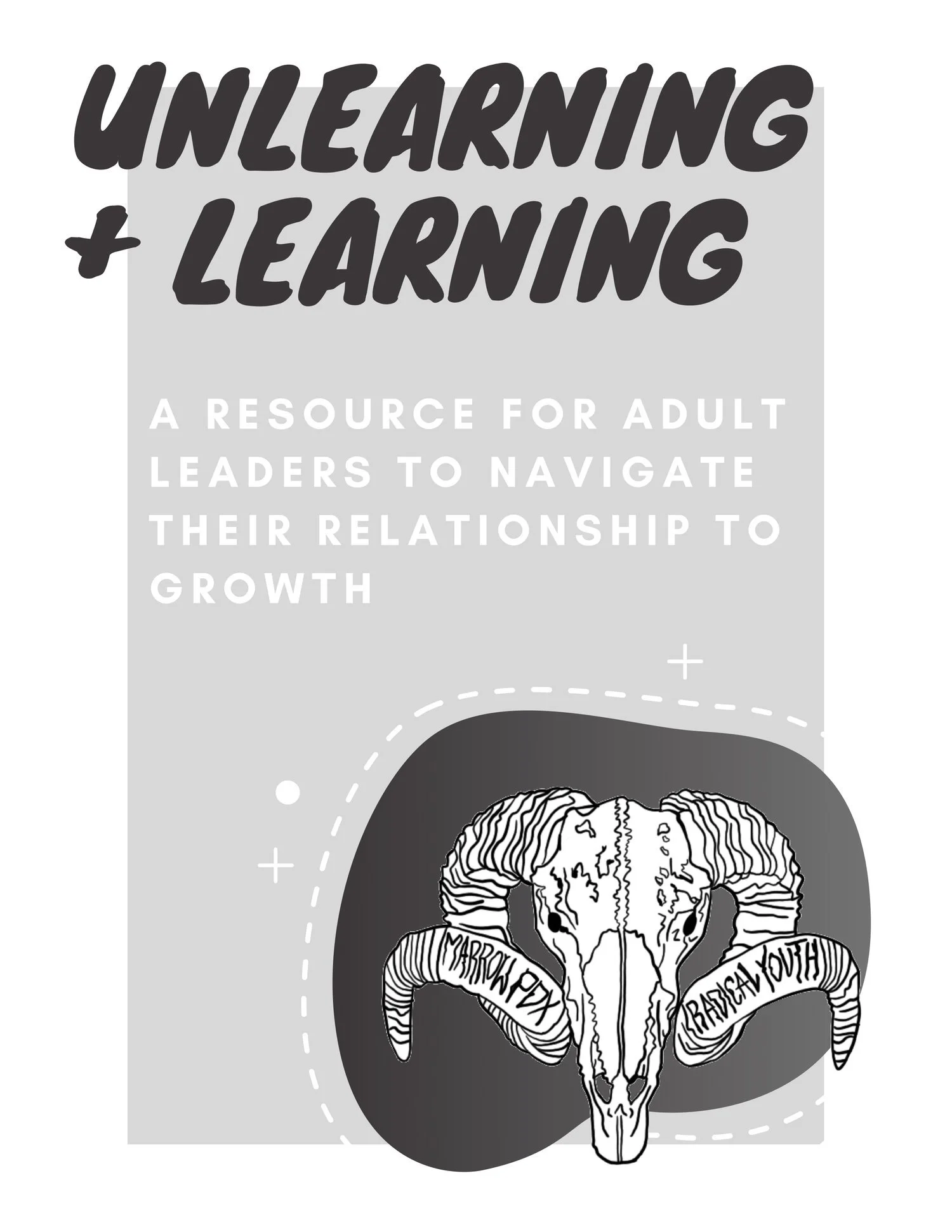Unlearning + Learning
Below is a zine Ever Milo Reid* and I made together as a take-away for “Radical Self Assessment to Build Creative Safe(r) Space”.
Feel free to print it out! If you find the content useful, please consider sending Ever a few dollars via venmo @queermoney as we didn’t get paid to lead the session or distribute the zine and eir lived experiences framed a lot of this work! :)
...
Background:
In 2019, Ever Milo Reid and I co-developed and co-led a session in the leadership development track at the Conference for Community Arts Education (organized annually by the National Guild for Community Arts Education).
I had been attending and volunteering at the conference since 2015, and despite its focus on equity work, I was disappointed that the majority of programming was led by individuals with a significant amount of institutional and academic privilege, rather than by members of the communities these art educators and administrators serve. At the time, Ever and I were co-directors at Marrow, and we felt that we had a unique perspective to share, given the collaborative nature of our roles at Marrow (the space being primarily youth-led, and Ever being a youth emself), so we decided to construct a session that would provide a safe(r) space for folks who occupy varying levels of privilege in their workplace to get uncomfortable, and confront the areas where they’d like to grow.
Radical Self-Assessment to Build Creative Safe(r) Space!
“Building safe(r) spaces starts with yourself. Are you educated on the margins that you're not in? Do you know how to show up and advocate for trans, queer, PoC, disabled, and mentally ill youth? How do you create space for young people to feel safe to be vulnerable, creative, and curious? We'll be de-stigmatizing the not-knowing that can accompany working with ever-evolving teen populations, and exploring ways to be the best possible advocate; practicing self analyzation and dismantling ingrained beliefs about gender, mental health, and ability. Participants will be asked to take an honest look at their core values, and determine whether they match up with their actions and environment. If not, how do we improve? Let's discuss! This workshop will be presented through the lens of working with preteen and teen populations, but the information and skills discussed are good for everyone who exists in community to practice.”
The session consisted of a presentation, followed by interactive group activities to help participants identify where there may be gaps between their touchstone values and practicing values (and the touchstone vs practicing values of their workplace/institution), ending with a talk-back and a super generative Q&A.
*Ever has, and has had, a lot of names and is credited in the zine as Chase.






























